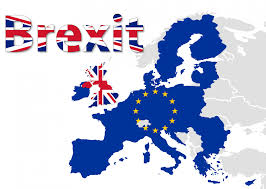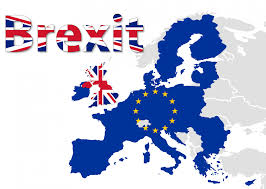
The benefit claimant figures actually fell in the UK following the country's decision to leave the European Union and this bit of fresh jobs data in the country has managed to surprise market analysts when they were released very recently.
The number of people claiming out of work benefits fell 8,600 which is around 2.2 percent of the total workforce, shows that data for July. This data is from the period which is an indicator of post-Brexit sentiment. Following the result to leave the EU, economists had expected the number of benefit claimants to rise by 9,500.
According to the ONS, the highest number of people claiming unemployment related benefits was 3.09 million in July 1986 while the lowest figure for the same was 422,600 in December 1973. There were 763,600 people claiming unemployment related benefits for the latest month - July 2016.
Meanwhile, marking the last employment measurement before the U.K.'s decision to leave the European Union EU) on June 23, unemployment in the U.K. remained unchanged in the three month to June. The U.K.'s statistics agency, the Office for National Statistics, said while unveiling the data that unemployment remained at 4.9 percent in the three months to June. In the May-June period, U.K. unemployment fell by 52,000 to 1.64 million, shows the data when it is broken down in detail. Estimates were met for the average weekly earnings which rose 2.4 percent in the same period.
Having traded at 86.47 before the data was released, Sterling rose to 86.35 pence per euro following the data.
However¸ the employment data masked a "ticking time bomb" in the jobs markets, warned Neil Wilson, markets analyst at ETX Capital.
"While the employment rate hit a record high, the figures are for the April to June period and don't really take into account the effect of the EU referendum. We shouldn't read too much into the marginal fall in people claiming unemployment benefit in July. Higher self-employment numbers could mean people are not getting enough hours and indeed average working times fell," he said in a note.
"Employment is a lagging indicator so we'll have to wait for the report in three months' time to really judge what has happened," he added.
One of the key indicators of how the Brexit vote is affecting the U.K. economy would be the unemployment level which will be closely watched by analysts in the coming months. However, with next month's figures expected to give a better idea of how employers feel about the vote, it largely remains to be seen whether the vote to leave the EU has impacted employer confidence and hiring prospects.
The UK business environment is expected to be left in a state of uncertainty because even when the country does trigger "Article 50" negotiations over the country's future relationship with the EU are expected to take years and Britain has yet to formally begin the EU exit process as of now.
Beating forecasts for a reading of 5.0 percent, unemployment in the U.K. nudged lower in the three months to May, hitting 4.9 percent - its lowest level since late 2005, according to ONS data released last month. Meanwhile, expectations were met for the three months to May with respect to the average weekly earnings which rose 2.3 percent year-on-year.
(Source:www.cnbc.com)
The number of people claiming out of work benefits fell 8,600 which is around 2.2 percent of the total workforce, shows that data for July. This data is from the period which is an indicator of post-Brexit sentiment. Following the result to leave the EU, economists had expected the number of benefit claimants to rise by 9,500.
According to the ONS, the highest number of people claiming unemployment related benefits was 3.09 million in July 1986 while the lowest figure for the same was 422,600 in December 1973. There were 763,600 people claiming unemployment related benefits for the latest month - July 2016.
Meanwhile, marking the last employment measurement before the U.K.'s decision to leave the European Union EU) on June 23, unemployment in the U.K. remained unchanged in the three month to June. The U.K.'s statistics agency, the Office for National Statistics, said while unveiling the data that unemployment remained at 4.9 percent in the three months to June. In the May-June period, U.K. unemployment fell by 52,000 to 1.64 million, shows the data when it is broken down in detail. Estimates were met for the average weekly earnings which rose 2.4 percent in the same period.
Having traded at 86.47 before the data was released, Sterling rose to 86.35 pence per euro following the data.
However¸ the employment data masked a "ticking time bomb" in the jobs markets, warned Neil Wilson, markets analyst at ETX Capital.
"While the employment rate hit a record high, the figures are for the April to June period and don't really take into account the effect of the EU referendum. We shouldn't read too much into the marginal fall in people claiming unemployment benefit in July. Higher self-employment numbers could mean people are not getting enough hours and indeed average working times fell," he said in a note.
"Employment is a lagging indicator so we'll have to wait for the report in three months' time to really judge what has happened," he added.
One of the key indicators of how the Brexit vote is affecting the U.K. economy would be the unemployment level which will be closely watched by analysts in the coming months. However, with next month's figures expected to give a better idea of how employers feel about the vote, it largely remains to be seen whether the vote to leave the EU has impacted employer confidence and hiring prospects.
The UK business environment is expected to be left in a state of uncertainty because even when the country does trigger "Article 50" negotiations over the country's future relationship with the EU are expected to take years and Britain has yet to formally begin the EU exit process as of now.
Beating forecasts for a reading of 5.0 percent, unemployment in the U.K. nudged lower in the three months to May, hitting 4.9 percent - its lowest level since late 2005, according to ONS data released last month. Meanwhile, expectations were met for the three months to May with respect to the average weekly earnings which rose 2.3 percent year-on-year.
(Source:www.cnbc.com)





